PMHS minority students say they experience little bias, though some offensive comments are reported
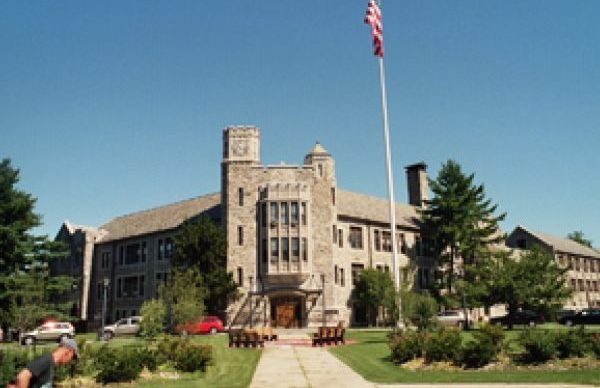
Editor’s note: To allow for privacy and open communication, assumed names are used in this article.
Most minority students at Pelham Memorial High School interviewed by the Pelham Examiner say they experience little racial, religious, or sexual discrimination, though a Muslim student said she has faced bias at times and a member of the LGBTQ+ community has heard offensive jokes. The latter said teachers quickly addressed the issue.
The interviews followed the discovery of three swastikas in Pelham Middle School.
Discussions surrounding the swastikas have far from settled in the past few weeks as community members have continued to express their opinions and experiences. As parents and students alike trade stories of both empathy and mistreatment, the true nature of Pelham’s environment remains unclear.
As a Muslim student at PMHS, Grace is definitely aware that she is viewed with a certain level of bias. She addressed the common perception of Muslim girls, especially, as “oppressed.” People tend to turn their attention towards Islamic culture in countries like Saudi Arabia and Iran, which serves as a source of her frustration.
“One religion is not globally defined by one country,” she said. To view all practicing Muslims as related to terrorists or needing to be freed is ignorant, and generalizes an entire group of people without ever taking into account the experiences of individuals.
“I would rather you ask me questions,” Grace said. It shouldn’t be uncomfortable to learn about another culture, especially when doing so might allow people to avoid making incorrect and often offensive assumptions.
When asked if she has ever been a victim of harassment due to her religion, Grace said she has not. She said she recognized that she may be a lucky exception, though, describing the bullying experiences of some of her friends in neighboring areas.
The key in these interactions, Grace said, is to be open-minded. She said she firmly believes that for the most part, people are not looking to offend. If people are open and willing to ask and learn respectfully, she said there is the potential to overcome ignorance in an effort to celebrate different groups in the community.
Juliet identifies as both an ethnic and religious minority: Her Indian and Dominican family practices Sikhism, making her unique in the Pelham community. Although she recognizes that she is distinctive in this sense, she said that she has never felt isolated in the school system.
She said she tends to go into situations aiming to look on the bright side, understanding that while she might be anxious that her unique background impacts people’s perception of her, this is hardly ever the case in her daily interactions. The few times that Juliet has experienced direct harassment were outside of Pelham, and she felt they were reflective of the lack of awareness that many people have about non-Christian religions.
To counter this bias, Juliet said that it is important to “create an environment where it’s more like you’re not going to offend someone if you ask a genuine question.” This is often confused with forcing acceptance in schools when teachers uncomfortably try to bring attention to differences among students.
“People as a whole are already very open and accepting,” she said. To assume otherwise is often counter-productive, and can even hinder the development of a welcoming school community.
Instead, Juliet brought up a point that many parents and administrators have been concerned with in the aftermath of the swastikas. “It’s more in the homes,” she said. The schools have not fostered ideas of hate or bullying. Behavior and beliefs are taught and influenced by factors outside of the school. Whether this be parents or media, at a certain point, it may be beyond the school’s control.
The desire of many to learn about other cultures is satisfied through both clubs and curriculum, welcoming students into a safe atmosphere, said Juliet. Much like Grace, Juliet said she is able to maintain a positive outlook on the curiosity of others, giving people with sometimes blunt inquiries the benefit of the doubt.
In sharing her experiences, Dakota similarly concluded that education is a key factor in creating a welcoming environment in the schools. As a member of the LGBTQ+ community, Dakota said that while she’s never personally had to deal with harassment in the school for being lesbian, she is very much aware of the ignorance that lingers in the building.
“I’ve never experienced it directly, but I’ve seen a lot of insensitive commentary and joking,” she said. “I feel like the educators are all really good with taking the first step of acknowledging what’s happening and acknowledging that it’s not okay. But I think the students—not all of them, there are a few—just have a bit to learn. I think they don’t think it’s as serious as it can be.”
She said she doesn’t believe “hate” has taken shape in Pelham schools. A simple lack of education seems to be the real issue. Even when she observes kids making offensive jokes, she said, “I feel like in school people who make those jokes and do that stuff don’t want to actually say it to those people’s faces. It probably is just a joke, and they don’t want to offend people.” Dakota said she recognizes the classic high school issue resurfacing anytime she hears crude language or slurs: People just think it’s “cool.”
Never, at least on school property, has she felt targeted for being lesbian. And even in one situation where she did ultimately confront a peer for using an inappropriate term to refer to the LGBTQ+ community, she found that it was a matter of ignorance.
James, an Asian American student at PMHS, provided yet another perspective on the lack of racial bias in the local community. His only experience with racially charged behavior, he said, has “come in the form of friendly banter.” Aside from this perceived harmless joking, James said he has never dealt with any harassment in the district for being a minority. He, like many of the students interviewed, is quite proud of the effort by the Pelham schools to provide a welcoming environment for a diverse group of students.
In Pelham, James said, “there is a strong emphasis put on recognizing and accepting those of minority groups within the community.” As a result of this, he said he has not felt targeted or outcast for being a minority.
“I feel like true hate-charged attacks in Pelham are so rare that when they do actually happen the community is quick to act and takes drastic steps to ensure similar situations do not happen again.” James pointed to the efficiency and urgency with which the administration addressed the swastikas in the middle school. “Pelham as a whole does a good job of taking a clear stance against hatred.”
Emma, an African American student, is fully aware of her presence as a minority that makes up just 7% of the population. In each graduating class, she said, the average number of African American students reaches about 10 to 15, if that. However, much like James, when asked if she has ever experienced any bias or bullying due to her race, her answer is a simple and confident, “no.”
“I feel as though it is obvious that Pelham tries to create a place that accepts all,” she said. The one regret she does have is that she feels the school does not adequately advertise historically black colleges and universities to minority students. She said it is important for students to be given an opportunity to embrace their unique backgrounds through these schools.
Emma said she recognizes that adults in the district aren’t able to stop hate altogether. It is the students who are responsible for bringing an end to prejudice and harassment in Pelham schools, she said.
Alexandra, a Jewish student at PMHS, said bias in the community has never really been an issue for her. With the variety of culture clubs, groups and associations in the high school, she said she has felt accepted. She did say a few years ago she was a victim of name-calling based on her religion when in the midst of an argument.
“I think Pelham schools administration and faculty have done a great job addressing instances of mistreatment,” Alexandra said.
She said she was satisfied with the district’s approach to the incident in the middle school in early October. She was impressed not only with how quickly a district-wide email was sent out after the discovery of the swastikas drawn in the middle school, but also the effort by the administration to inform parents and community members of the event as thoroughly as possible.
“There will always be some sort of hate or negativity from people who don’t even know you, but just see you as different,” Alexandra said, “and to them, different is wrong.”
Even with the generally positive responses from these students, it cannot be denied that others have struggled through different and, unfortunately, less open interactions in the district. However, it is important to recognize that the narrative of Pelham students provides some faith in our schools to create an environment in which a diverse new generation can grow up.
Sophia Leung is a freshman at the University of Pennsylvania with an undecided major in the College of Arts and Sciences. In addition to contributing to...



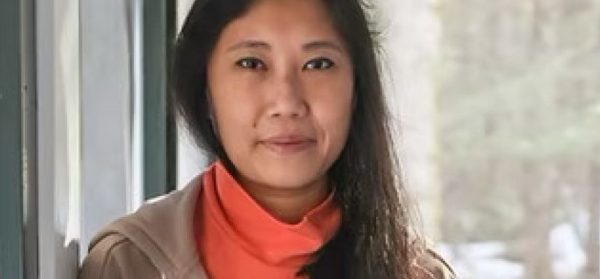

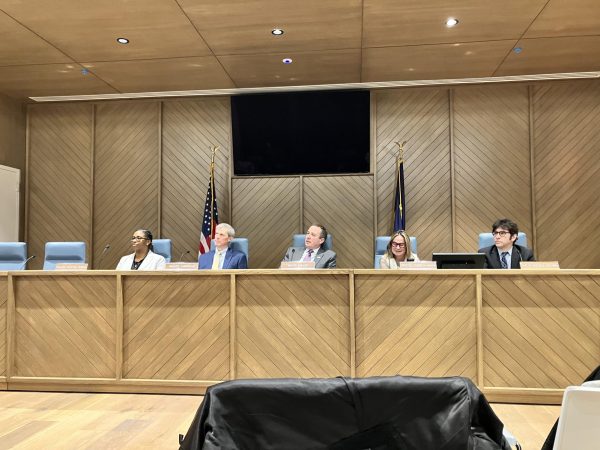
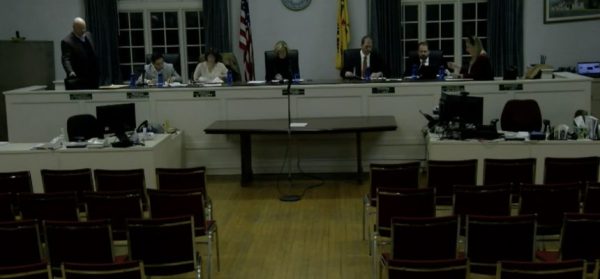

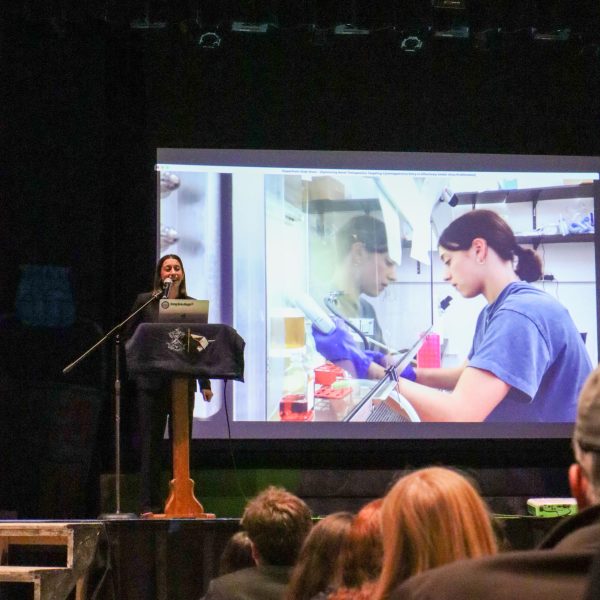

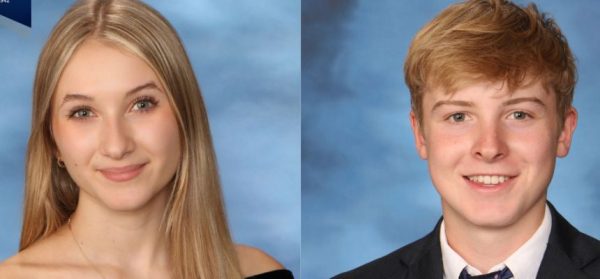
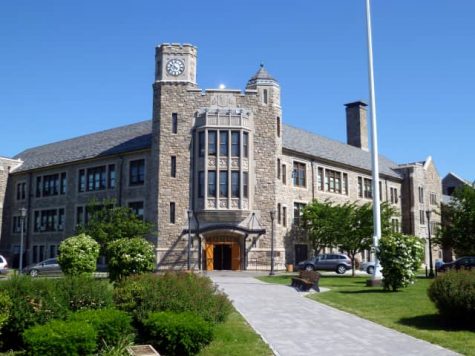
Thomas F Imperato • Nov 8, 2019 at 5:49 pm
Thank you for this well written essay.
Charles Stern • Nov 8, 2019 at 5:29 pm
It’s a start. I’m turning blue, waiting for the Democratic Party to run a full slate. I hope they outlaw the villages, and cut the waste.